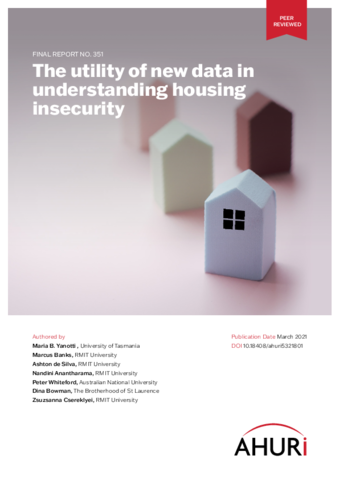This research investigates the potential of using the Department of Social Services (DSS) DOMINO (Data Over Multiple Individual Occurrences) dataset as a fine-grained, within-year data resource for housing research, and in particular explores the capacity of the DOMINO dataset to yield new insights into patterns of CRA (Commonwealth Rent Assistance) receipt in households reliant on Newstart Allowance, pensions and Family Tax Benefit.
The very large, highly complex DSS DOMINO dataset includes, at an individual and household level, daily event-based information on all Australian social security recipients’ demographics, benefits history, concessions, and housing since 2000. These DOMINO events are each a record of a change that occurred in an individual’s circumstances that on a particular day which may affect their social security payment eligibility, rate or payability.
When compared against end-of-year data for CRA, DOMINO revealed that demand for CRA is far higher than commonly understood. The research identified nearly two million (1,967,028) households who received CRA payments during 2016, whereas previously published CRA demographic data inferred that approximately 1.3 million individuals received CRA in 2016–17. In addition, DOMINO showed there is a significant churn of individuals who received CRA with 747,167 households starting to receive this payment and 505,942 ceasing receipt during 2016, information that is not captured by stock data commonly used in housing policy analyses.
DOMINO offers a unique and powerful resource for housing and welfare research. However, a deeper understanding of the database’s complex variables and values—and their historically- and policy-inscribed relationships—is required before undertaking more detailed research.


